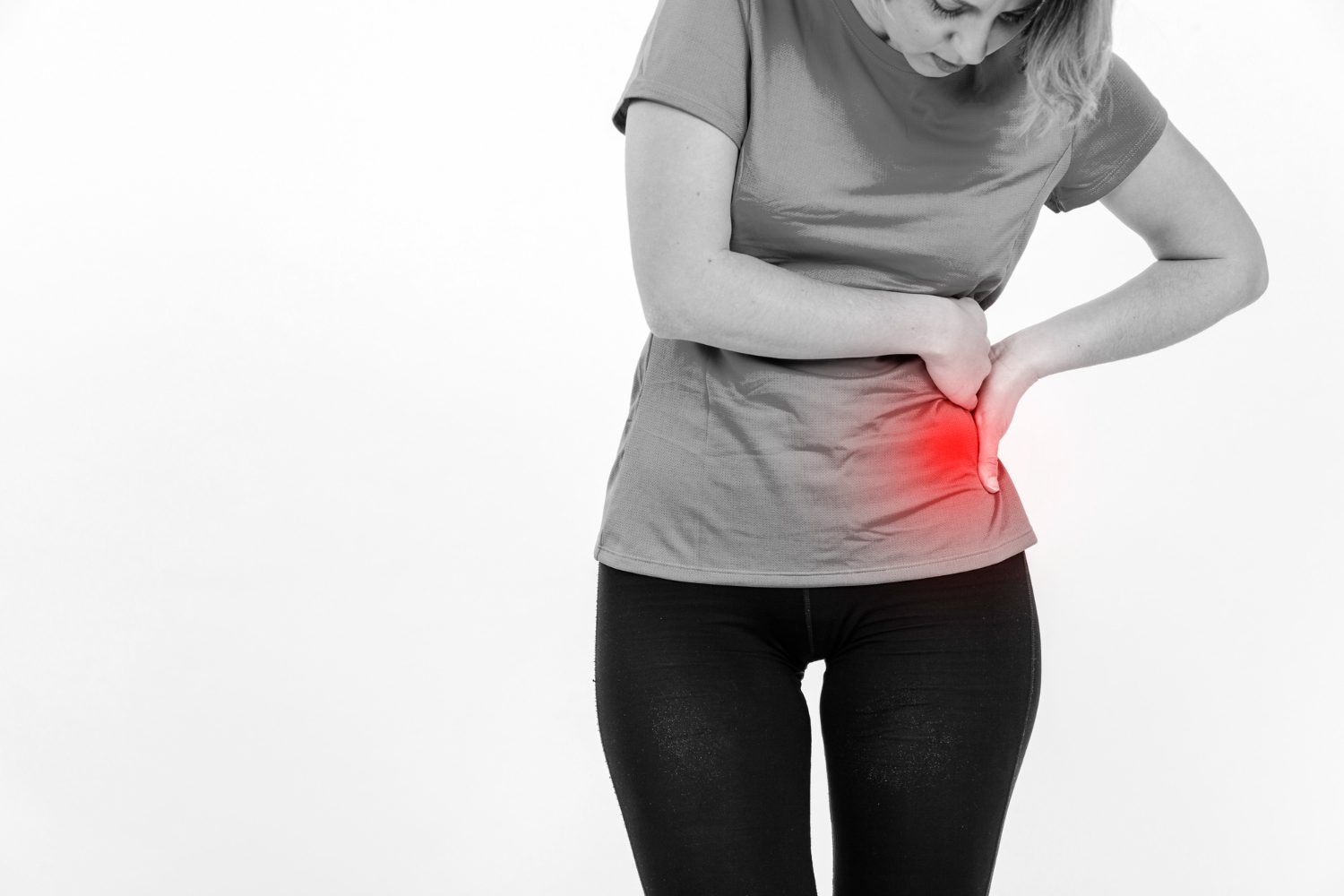
Hiatal Hernia And Back Pain: Shocking Facts You Need To Know !
admin
- 0
- 9
Yes, hiatal hernia can cause back pain, though it is not the most common symptom associated with this condition. Back pain can be a symptom of hiatal hernia, a condition where part of the stomach pushes up into the chest through the diaphragm.
Typically, most people with hiatal hernia experience symptoms such as heartburn, acid reflux, chest pain, and difficulty swallowing. However, in some cases, the herniated stomach can put pressure on the nerves in the nearby area, including those that innervate the back, leading to back pain.
If you are experiencing back pain along with other symptoms of hiatal hernia, it is important to consult a healthcare professional for proper diagnosis and treatment.

Table of Contents
ToggleUnderstanding Hiatal Hernia And Its Relationship With Back Pain
Hiatal hernia is a medical condition that occurs when a portion of the stomach pushes upward through the diaphragm, which is the muscle that separates the chest from the abdomen. This can lead to various discomforting symptoms, including acid reflux, chest pain, and even back pain.
In this section, we will explore the definition and explanation of hiatal hernia, as well as its connection to back pain.
Definition And Explanation Of Hiatal Hernia:
- Hiatal hernia is a condition in which a part of the stomach protrudes through the diaphragm into the chest cavity.
- It can be classified into two types: Sliding hiatal hernia and paraesophageal hiatal hernia.
- Sliding hiatal hernia is the most common type, where the junction between the esophagus and the stomach slides up into the chest.
- Paraesophageal hiatal hernia occurs when a portion of the stomach pushes through the diaphragm, remaining next to the esophagus.
- Hiatal hernia can be caused by factors like age, obesity, smoking, and pregnancy.
- It is known to cause symptoms such as heartburn, regurgitation, chest pain, and difficulty swallowing.
Overview Of The Anatomy Of The Hiatal Region:
- The hiatal region is located in the upper part of the abdomen, where the esophagus meets the stomach.
- The diaphragm, a dome-shaped muscle, plays a crucial role in separating the chest and abdominal cavities.
- The esophagus passes through an opening in the diaphragm, known as the hiatus, before connecting with the stomach.
- In a hiatal hernia, the stomach bulges through this opening, interrupting the normal anatomy of the hiatal region.
- This disruption can lead to the displacement of other structures in the area, potentially causing back pain.
Connection Between Hiatal Hernia And Back Pain:
- The direct connection between hiatal hernia and back pain is not well understood and may vary from person to person.
- In some cases, the distention of the stomach due to a hiatal hernia can put pressure on the surrounding nerves, leading to back pain.
- The nerves in the diaphragm and surrounding tissues may become compressed or irritated, contributing to discomfort in the back.
- Additionally, the altered position of the stomach can cause a shift in the spine’s alignment, resulting in back pain.
- It’s important to note that not everyone with a hiatal hernia experiences back pain, and other factors may contribute to the presence of this symptom.
- If you have a hiatal hernia and are experiencing back pain, it is recommended to consult with a healthcare professional for proper evaluation and treatment options.
While there is a potential relationship between hiatal hernia and back pain, further research is needed to fully understand the mechanisms involved. If you have concerns about your symptoms, it is always advisable to seek medical advice from a qualified healthcare provider.
Symptoms Of Hiatal Hernia That May Result In Back Pain
Hiatal hernia is a condition where a portion of the stomach protrudes through the diaphragm muscle into the chest cavity. While the most common symptom is acid reflux, it is important to note that this condition may also cause back pain.
Understanding the symptoms associated with hiatal hernia that may result in back pain can help individuals seek proper diagnosis and treatment. Let’s explore some of the common symptoms and specific signs that indicate a potential link to back pain.
Common Symptoms Associated With Hiatal Hernia:
- Heartburn: A burning sensation in the chest caused by stomach acid flowing back into the esophagus.
- Regurgitation: The backflow of stomach contents into the throat or mouth, often accompanied by a sour taste.
- Chest pain: A discomfort or pressure in the chest that can mimic the symptoms of a heart attack.
- Difficulty swallowing: A sensation of food getting stuck in the chest or throat.
- Belching or bloating: Excessive burping or feeling full and gassy.
Specific Signs Indicating A Potential Link To Back Pain:
- Thoracic pain: Hiatal hernia can cause pain in the middle or upper back, often described as a dull ache or pressure.
- Radiating pain: Some individuals with hiatal hernia may experience pain that radiates towards the shoulders, neck, or arms.
- Post-meal discomfort: Back pain may worsen after eating a meal, especially a large or heavy one.
- Positional pain: Back pain may be exacerbated by certain positions, such as lying down or bending over.
- Recurring episodes: If back pain occurs in conjunction with other hiatal hernia symptoms and is experienced repeatedly, it may be a sign of a direct connection.
Understanding The Mechanism Behind Hiatal Hernia-Related Back Pain:
When a hiatal hernia occurs, the protrusion of the stomach into the chest alters the normal position of organs. This displacement can lead to increased pressure in the chest and abdomen, affecting adjacent structures like the spine and nerves. The mechanism behind hiatal hernia-related back pain involves irritation or compression of nerves in the affected area.
It is important to note that back pain caused by hiatal hernia is usually intermittent and may vary in intensity.
While the direct link between hiatal hernia and back pain is not fully understood, several theories suggest that nerve irritation, acid reflux, or inflammation associated with the hernia contribute to the discomfort. Seeking medical evaluation and diagnosis is crucial to rule out other potential causes of back pain and to develop an appropriate treatment plan.
Remember, if you experience persistent or severe back pain alongside symptoms of hiatal hernia, it is imperative to consult a healthcare professional for accurate diagnosis and tailored treatment options.
Factors That Increase The Likelihood Of Hiatal Hernia Causing Back Pain
Can hiatal hernia cause back pain? Hiatal hernia is a condition where a portion of the stomach pushes through the diaphragm into the chest cavity. While the primary symptom of hiatal hernia is usually heartburn, it can also lead to back pain.
In this section, we will explore the factors that increase the likelihood of hiatal hernia causing back pain.
Lifestyle And Dietary Factors That Contribute To Hiatal Hernia-Related Back Pain:
- Obesity: Excess weight can put pressure on the stomach, leading to the development of hiatal hernia and potential back pain.
- Poor diet: Consuming large meals, fatty and fried foods, caffeine, and carbonated beverages can exacerbate symptoms associated with hiatal hernia, including back pain.
- Smoking: Smoking weakens the lower esophageal sphincter, which can contribute to the development of hiatal hernia and increase the chances of back pain.
Impact Of Chronic Stress And Poor Posture On Hiatal Hernia And Back Pain:
- Stress: Chronic stress can lead to increased gastric acid production, which can aggravate hiatal hernia symptoms and potentially cause back pain.
- Poor posture: Slouching or sitting in a hunched position can put pressure on the stomach and diaphragm, contributing to hiatal hernia-related back pain.
Pre-Existing Conditions Or Medical Interventions That May Exacerbate The Connection:
- Pregnancy: During pregnancy, the growing uterus can displace the stomach, leading to hiatal hernia and potential back pain.
- Abdominal surgery: Previous abdominal surgeries can weaken the diaphragm and increase the likelihood of developing both hiatal hernia and back pain.
- Connective tissue disorders: Conditions such as ehlers-danlos syndrome and marfan syndrome, characterized by weak connective tissues, can increase the chances of developing hiatal hernia, which in turn may cause back pain.
Several lifestyle and dietary factors, chronic stress, poor posture, and pre-existing conditions can increase the likelihood of hiatal hernia causing back pain. By understanding and addressing these factors, individuals with hiatal hernia can potentially alleviate back pain and improve their overall quality of life.
Easing Back Pain Caused By Hiatal Hernia
Living with back pain caused by a hiatal hernia can be challenging, but there are several strategies and interventions that can provide relief. By making lifestyle modifications, participating in targeted exercises and stretches, and considering potential medical interventions and therapies, you can significantly reduce the discomfort associated with hiatal hernia-related back pain.
Lifestyle Modifications To Reduce Hiatal Hernia-Related Back Pain:
- Maintain a healthy weight: Excess weight can put pressure on the abdomen, exacerbating hiatal hernia symptoms and contributing to back pain. By adopting a balanced diet and engaging in regular physical activity, you can shed pounds and alleviate the strain on your back.
- Eat smaller meals: Consuming large meals can put extra pressure on the stomach and the diaphragm, leading to increased back pain. Opt for smaller, more frequent meals throughout the day to ease the burden on your digestive system.
- Avoid trigger foods: Certain foods, such as fatty or spicy dishes, chocolate, and caffeine, can trigger acid reflux, aggravating hiatal hernia symptoms and causing back pain. Identify your personal trigger foods and limit or eliminate them from your diet.
- Practice good posture: Slouching or poor posture can contribute to hiatal hernia-related back pain. Maintain proper alignment by sitting and standing up straight, engaging your core muscles, and avoiding positions that strain your back.
Exercises And Stretches To Alleviate Discomfort:
- Diaphragmatic breathing: Focus on deep breathing exercises that engage the diaphragm, helping to reduce tension in the abdominal area and alleviate back pain associated with hiatal hernia.
- Gentle yoga poses: Certain yoga poses, such as cat-cow, child’s pose, and balasana, can stretch and strengthen the muscles surrounding the hiatal hernia, providing relief from back pain. Consult with a qualified yoga instructor to determine which poses are right for you.
- Core strengthening exercises: Building strong core muscles can provide additional support to the abdomen and help alleviate back pain caused by hiatal hernia. Incorporate exercises like planks, bridges, and pelvic tilts into your fitness routine.
Potential Medical Interventions And Therapies For Relief:
- Medications: Over-the-counter antacids or prescription medications can help reduce acid reflux and alleviate back pain. Consult with your healthcare provider to determine the most suitable medication for your specific situation.
- Endoscopic treatments: In some cases, endoscopic procedures such as nissen fundoplication or linx device placement may be recommended to reduce the symptoms of hiatal hernia, including back pain.
- Physical therapy: Working with a skilled physical therapist can help address muscle imbalances and provide targeted exercises to alleviate hiatal hernia-related back pain.
- Surgical intervention: In severe cases, surgical repair of the hiatal hernia may be necessary to relieve back pain and other associated symptoms. Discuss the potential benefits and risks of surgery with your healthcare provider.
Remember, it’s crucial to consult with a qualified healthcare professional to evaluate your specific condition and determine the most appropriate course of action for managing hiatal hernia-related back pain.
Precautions And Considerations For Managing Hiatal Hernia-Induced Back Pain
Medical Advice And Precautions For Individuals Experiencing Back Pain:
Hiatal hernia-induced back pain can be challenging, but there are certain precautions and medical advice that can help manage the condition effectively:
- Take appropriate medications: Over-the-counter medications like antacids or acid-suppressing drugs can provide relief from symptoms like reflux and heartburn, which often accompany hiatal hernia and contribute to back pain.
- Manage body weight: Maintaining a healthy weight can reduce the pressure on the abdomen, minimizing the chances of the hiatal hernia worsening and causing back pain.
- Follow a balanced diet: Opt for a diet rich in fiber and low in fat to avoid straining the digestive system. This can help alleviate symptoms like bloating and discomfort that may worsen back pain.
- Avoid trigger foods: Some foods can trigger acid reflux and worsen hiatal hernia symptoms. Common trigger foods include spicy foods, acidic fruits, chocolate, mint, and caffeinated beverages. It’s essential to identify your trigger foods and avoid them.
- Eat smaller, frequent meals: Opt for smaller meals throughout the day instead of large meals that can put pressure on the hernia and increase the likelihood of back pain.
- Maintain good posture: Poor posture can strain the muscles and contribute to back pain. Keep your shoulders back, sit up straight, and avoid slouching to alleviate discomfort.
- Elevate the head of the bed: Raising the head of your bed by about 6-8 inches can help prevent acid reflux during sleep and reduce the likelihood of waking up with back pain.
Recognizing When To Seek Medical Attention:
While certain precautions can be effective in managing hiatal hernia-induced back pain, there are instances where seeking medical attention is crucial. Symptoms that warrant immediate medical assessment include:
- Severe and persistent back pain that is interfering with daily activities or sleep.
- Difficulty swallowing or pain while eating.
- Vomiting blood or noticing dark, tarry stools.
- Unexplained weight loss.
- Chest pain or pressure that radiates to the arms, neck, or jaw.
- Shortness of breath or difficulty breathing.
Living With Hiatal Hernia And Managing Back Pain In The Long Term:
Managing hiatal hernia-induced back pain in the long term requires a comprehensive approach that includes lifestyle modifications and ongoing precautions. Here are some ways to ensure a better quality of life:
- Regular exercise: Engaging in low-impact exercises like walking, swimming, or gentle yoga can help strengthen the core muscles, improve digestion, and minimize back pain.
- Stress management: Stress can exacerbate symptoms of hiatal hernia and contribute to back pain. Incorporating stress management techniques like deep breathing exercises, meditation, or hobbies can help alleviate symptoms.
- Avoid smoking and alcohol: Smoking and excessive alcohol consumption can worsen hiatal hernia symptoms and increase the risk of complications. It is best to quit smoking and limit alcohol intake.
- Regular check-ups: Regular appointments with your healthcare provider can help monitor the condition and address any changes or concerns promptly.
- Supportive measures: Wearing loose-fitting clothing and avoiding tight belts or waistbands can alleviate pressure on the abdomen and minimize back pain.
Remember, managing hiatal hernia-induced back pain is an ongoing process, and it’s essential to work closely with your healthcare provider to develop a personalized plan that suits your needs.
Lifestyle Changes To Prevent Or Minimize The Risk Of Back Pain From Hiatal Hernia
Living with a hiatal hernia can be challenging, especially when it comes to managing back pain. Fortunately, there are several lifestyle changes you can incorporate to reduce symptoms and prevent worsening of the condition. By making these adjustments, you can alleviate discomfort and enjoy a better quality of life.

Here are some tips to help you on your journey:
Dietary Changes To Reduce Symptoms And Prevent Back Pain:
- Maintain a healthy weight: Excess weight can put pressure on the stomach and contribute to the development of hiatal hernia. By maintaining a healthy weight, you can minimize strain on the affected area and reduce the risk of back pain.
- Eat smaller meals: Consuming large meals can cause the stomach to expand and put additional pressure on the hernia. Opt for smaller, more frequent meals to prevent discomfort and potential back pain.
- Avoid trigger foods: Certain foods can exacerbate symptoms associated with hiatal hernia, including back pain. Acidic foods, spicy dishes, caffeine, and fatty foods should be minimized or avoided altogether to prevent discomfort.
- Stay upright after meals: Lying down or reclining immediately after eating can lead to acid reflux and increase the risk of back pain. Make a habit of staying upright for at least two to three hours after meals to allow proper digestion and minimize symptoms.
Maintaining Good Posture And Ergonomics To Prevent Hernia-Related Complications:
- Practice good posture: Poor posture can contribute to the worsening of a hiatal hernia and lead to back pain. Be mindful of your posture throughout the day, ensuring your shoulders are back, and your spine is aligned.
- Avoid heavy lifting: Lifting heavy objects improperly can strain the abdominal muscles and put additional pressure on the hernia, leading to back pain. When lifting, remember to bend your knees, keep your back straight, and use your leg muscles for support.
- Use proper ergonomics: Whether at work or home, maintaining proper ergonomics is crucial in preventing hernia-related complications. Ensure your desk, chair, and other furniture are optimized for your body size and position to minimize strain on the abdomen.
Stress Management Techniques To Help Relieve Tension On The Hiatal Region:
- Practice deep breathing exercises: Deep breathing exercises can help reduce tension and stress on the hiatal region, potentially reducing back pain. Take slow, deep breaths, filling your diaphragm, and exhale slowly to promote relaxation.
- Engage in regular exercise: Regular physical activity can help manage stress levels and improve overall well-being. Incorporate exercises like yoga, pilates, or walking into your routine to strengthen your core muscles and relieve tension on the hiatal region.
- Consider stress-reducing activities: Engaging in activities that promote relaxation, such as meditation, mindfulness, or hobbies, can alleviate stress and indirectly reduce tension on the hiatal region, minimizing the risk of back pain.
By implementing these lifestyle changes, you can actively prevent or minimize the risk of back pain caused by a hiatal hernia. Remember to prioritize your health, make informed dietary choices, maintain proper posture, and manage stress effectively. Always consult with a healthcare professional for personalized advice and further guidance.
Frequently Asked Questions On Can Hiatal Hernia Cause Back Pain
Can Hiatal Hernia Cause Back Pain?
Yes, hiatal hernia can cause back pain. This occurs when the hernia causes the stomach to push against the diaphragm, which can lead to radiating pain in the back. The pressure on the nerves and muscles in the area can result in discomfort or even chronic pain.
It is best to consult a medical professional for proper diagnosis and treatment options.
Conclusion
Hiatal hernia can indeed cause back pain due to its impact on the diaphragm and surrounding tissues. The herniated part of the stomach can put pressure on the nerves in the area, leading to discomfort and pain in the back.
It is important to note, however, that back pain can have various other causes, so a proper diagnosis is crucial. If you are experiencing back pain and suspect it may be related to a hiatal hernia, it is recommended to consult with a healthcare professional.
They can perform a thorough evaluation and provide appropriate treatment options. Managing the symptoms of hiatal hernia, such as practicing good posture, avoiding heavy lifting, and eating smaller, more frequent meals, can also help alleviate associated back pain. By addressing the underlying cause and following medical advice, individuals can find relief and improve their quality of life.



